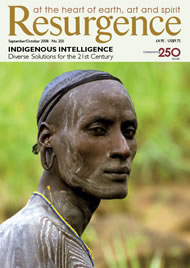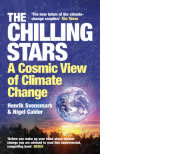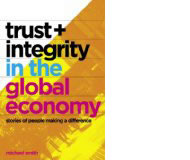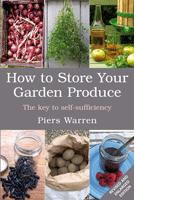THIS IS A fascinating personal history of an activist. In telling his life story, Tony Gibson gives the reader a wide and novel history of activism in the 20th century. From a young age, the author learnt that action led to results – he was encouraged to be active and to volunteer, which is why in his adult life he was to pursue this path.
Today, when our lives are shadowed by the fear of death and destruction, Gibson shows the light at the end of the tunnel – that action speaks louder than words. He tells us there’s no point in sitting on our hands on the sidelines, commenting anxiously on the blaze. Street level is where, in the long run, it begins to count.
His views are summed up by David Miliband: “To overcome the sense of powerlessness in local communities…we have to devolve power down to street level.” • Juliette Griffiths
How to Store Your Garden Produce: The Key to Self-Sufficiency
Piers Warren
Green Books, UK, 2008, £7.95
WITH A SUPERMARKET nearby and year-round availability of food from all corners of the globe, who needs to worry about storing, preserving, freezing, clamping, pickling, bottling, preserving, salting, drying or fermenting?
Well, actually, we all do. Storing food to extend the season, or preserving it as cider, sauce or pickle are ways in which we can simultaneously reduce our dependence on supermarkets, reduce food miles and eat locally, all year round.
This is a simple, well-written and comprehensive guide to storing our surplus food. It looks first at the general principles of storage, by listing the ‘enemies’ that cause food to spoil – enzymes, bacteria, yeasts and fungi – and how they do it. This leads to a description of all the different methods used to combat each of these types of spoilage.
The rest of the book is an alphabetical list of the various kinds of fruit and vegetable commonly produced in our gardens and allotments, and the ways in which each can be stored.
Each entry includes recommended varieties, suggested methods of storage and a number of recipes. There’s a wealth of useful information here, from how to make your own cider and pickled gherkins, to how to string onions and dry your own apple rings. • Marian Van Eyk McCain
The Chilling Stars: A Cosmic View of Climate Change
Henrik Svensmark and Nigel Calder
Icon Books, UK, 2008, £7.99
HUMAN EGO NEEDS to believe that human nature is the prime mover in any global event. Not only does this reassure us that we are top dog, but it also implies that if we are the cause and are aware of the effect, then ultimately we must be in control – which is a comforting notion.
The Chilling Stars dispels this myth. It reminds us that the Earth is not a closed system and that our planet and we ourselves are subject to universal laws that most of us are blissfully unaware of. Furthermore, that the many complex cosmic interactions affecting conditions on Earth are most certainly out of our control.
In this book attention is focused on the interplay between the sun and the cosmic rays from exploded stars, the effect that this has on the Earth’s climate today, and the effect it has had in the past. The theory that the sun (which is, after all, the most powerful and primary source of heat in our lives) plays a far greater role in planetary warming (and cooling) than any of our human excesses is compelling. Not only does it seem feasible, but for me it is a discomforting notion that comes as a profound relief. • Lynn Batten
Trust and Integrity in the Global Economy: Stories of People Making a Difference
Michael Smith
Caux Books in association with Caux Initiatives for Business, Switzerland, 2007, £5.99
THIS HEART-WARMING booklet is a collection of fifteen individual stories by business and social entrepreneurs who have been challenged to take a moral stand in their working lives. The stories range from India to Jamaica, Pakistan to Sri Lanka, Scotland to the Soloman Islands, Kenya, Zimbabwe, Australia, New Zealand and the UK. They put a human face on globalisation.
A collection of individual stories, although inspiring, does not a movement make. However, if you consider that the media over-emphasise the negative and under-report the positive, especially when reporting on the developing world, then this little book will help to restore the balance. The theme is that it is possible to build a business based on trust and values-centred leadership.
Some people would consider this naïve, but such ‘bridges of benevolence’ are potentially very important, since much official government aid and corporate development funding goes astray through corruption. The direct links of church to church, community to community, and business to business groups across the globe offer another unofficial route for trade and aid that is much more transparent and potentially more effective at helping the right people. Footnote: It was at the Caux Conference in 1977 that Fritz Schumacher, author of Small is Beautiful, gave his very last lecture. • Richard St. George










